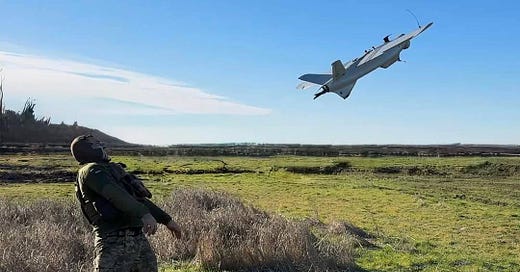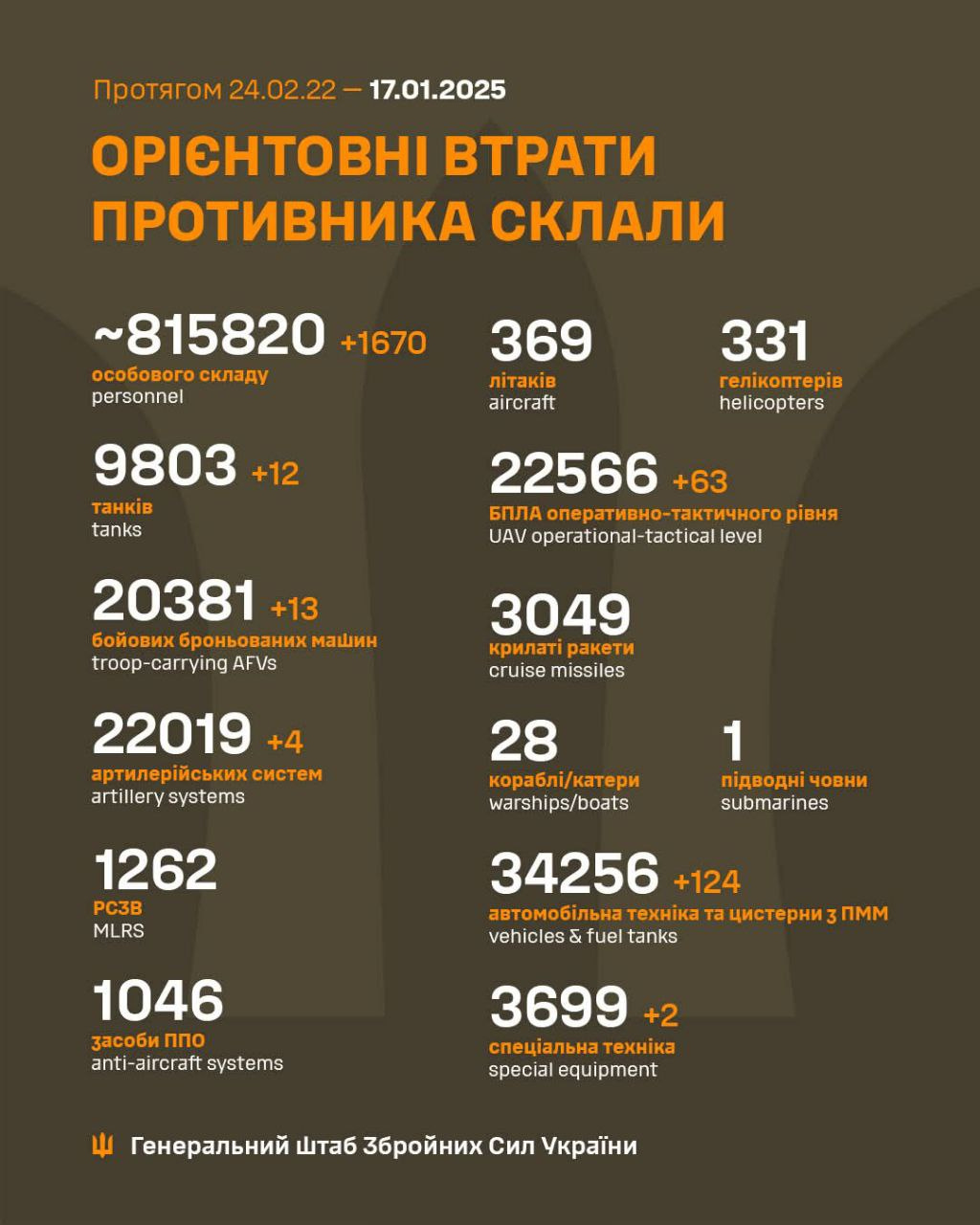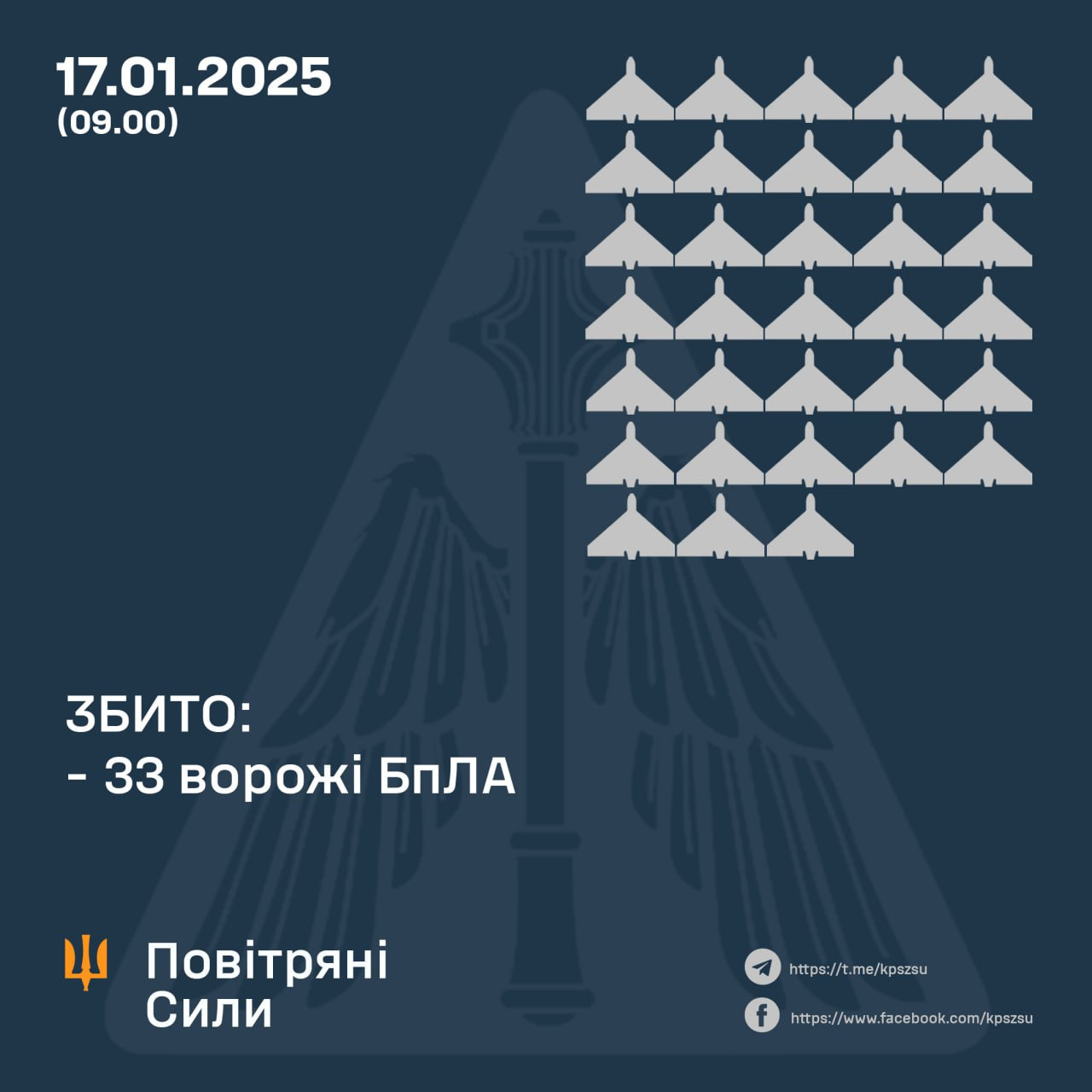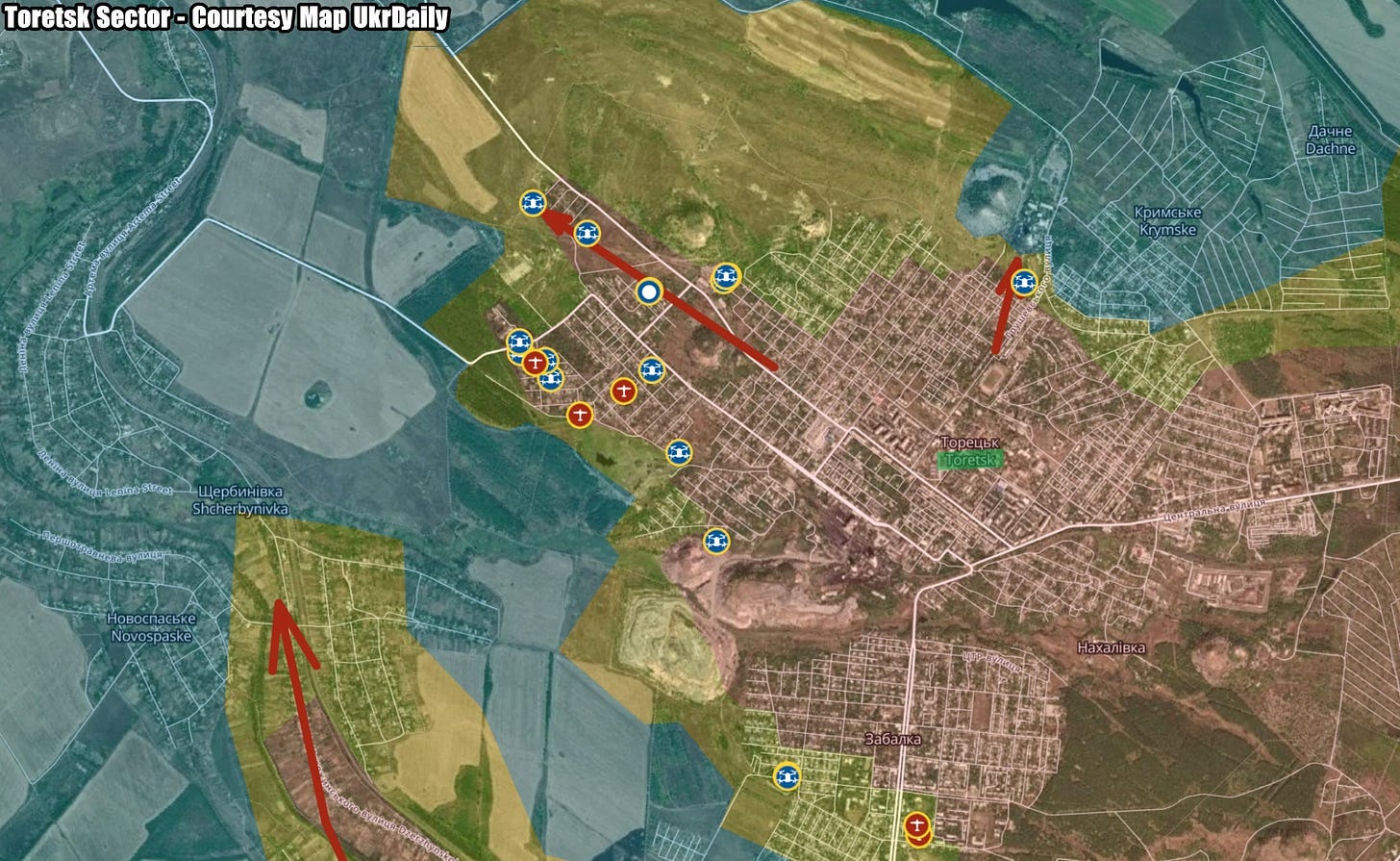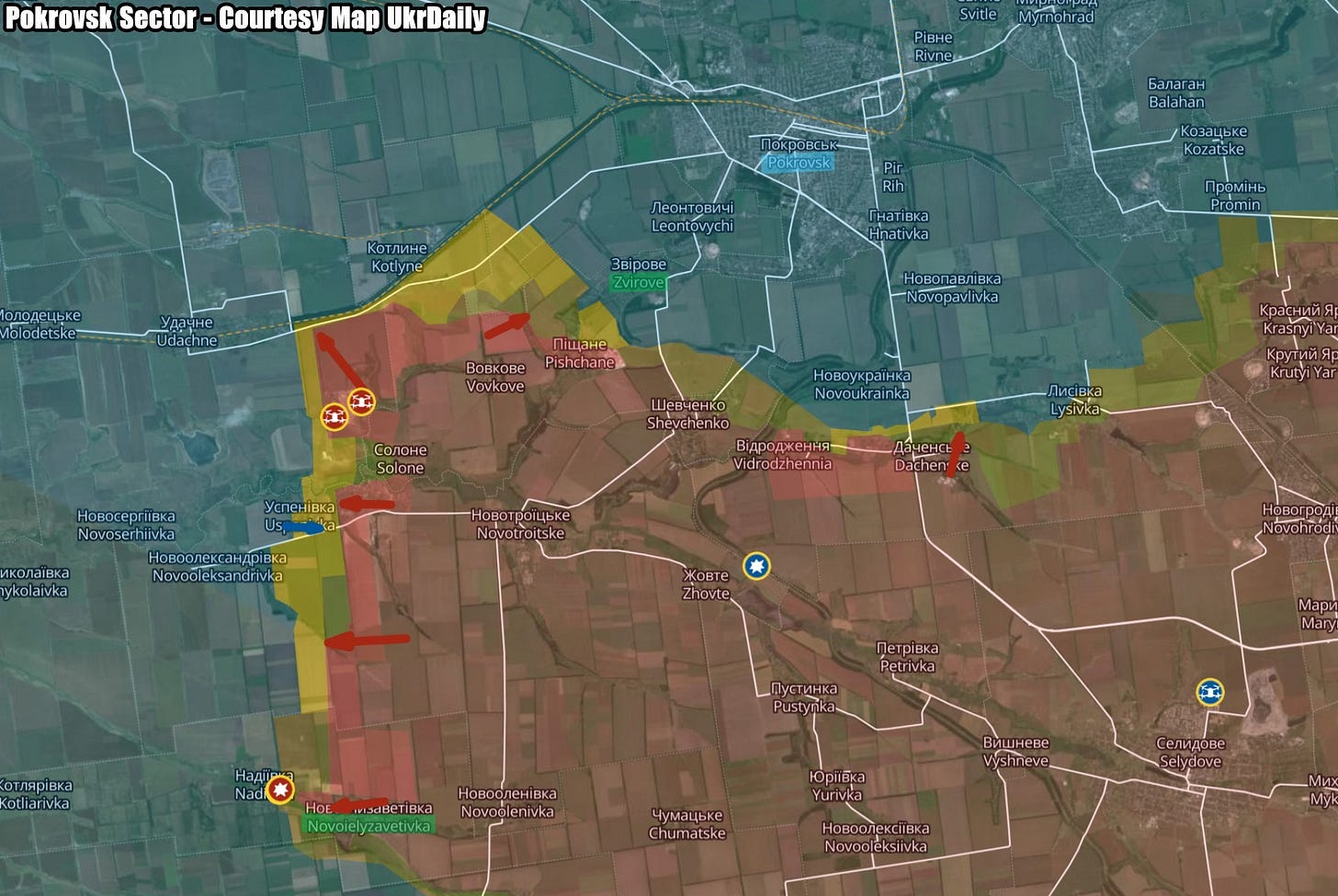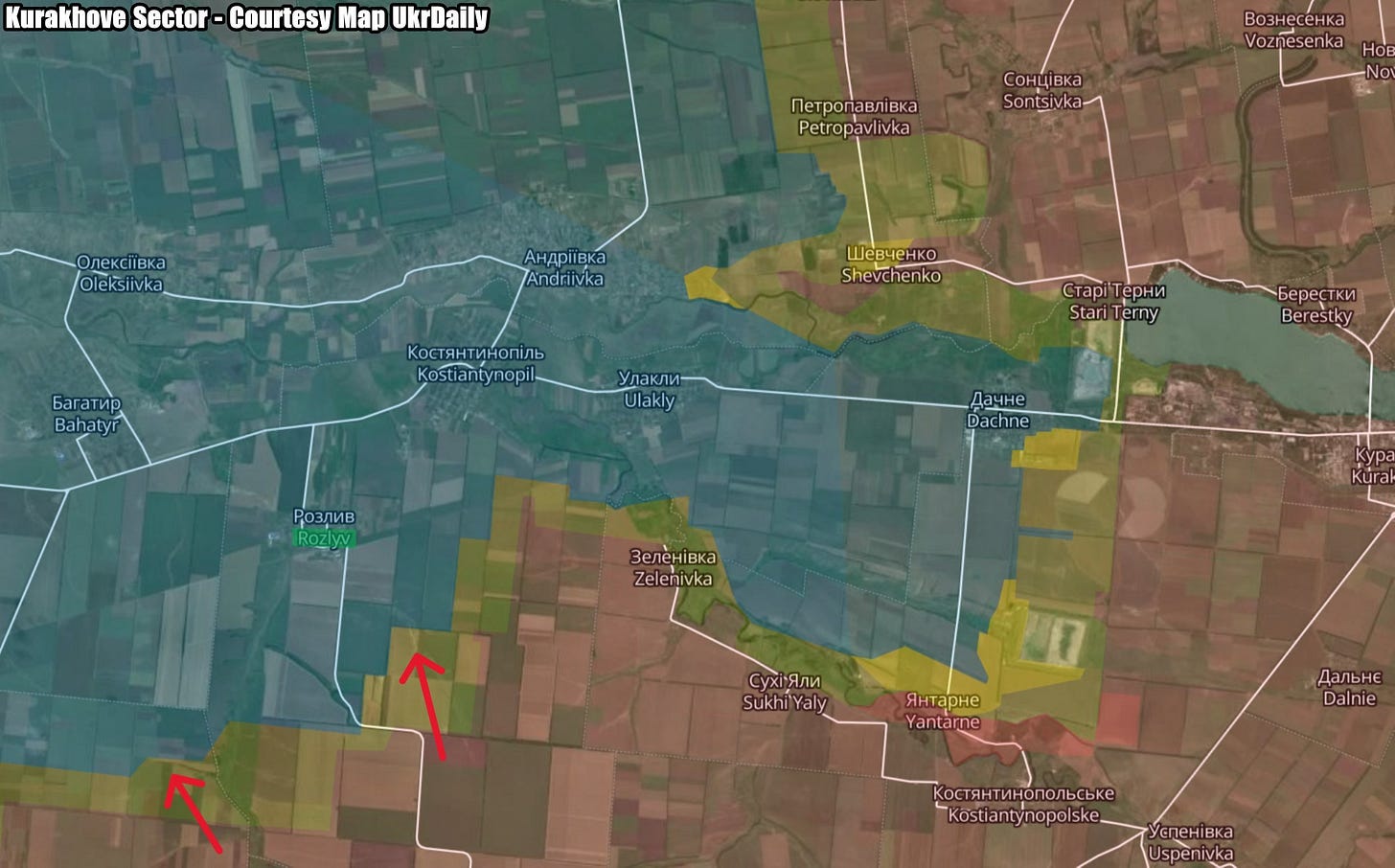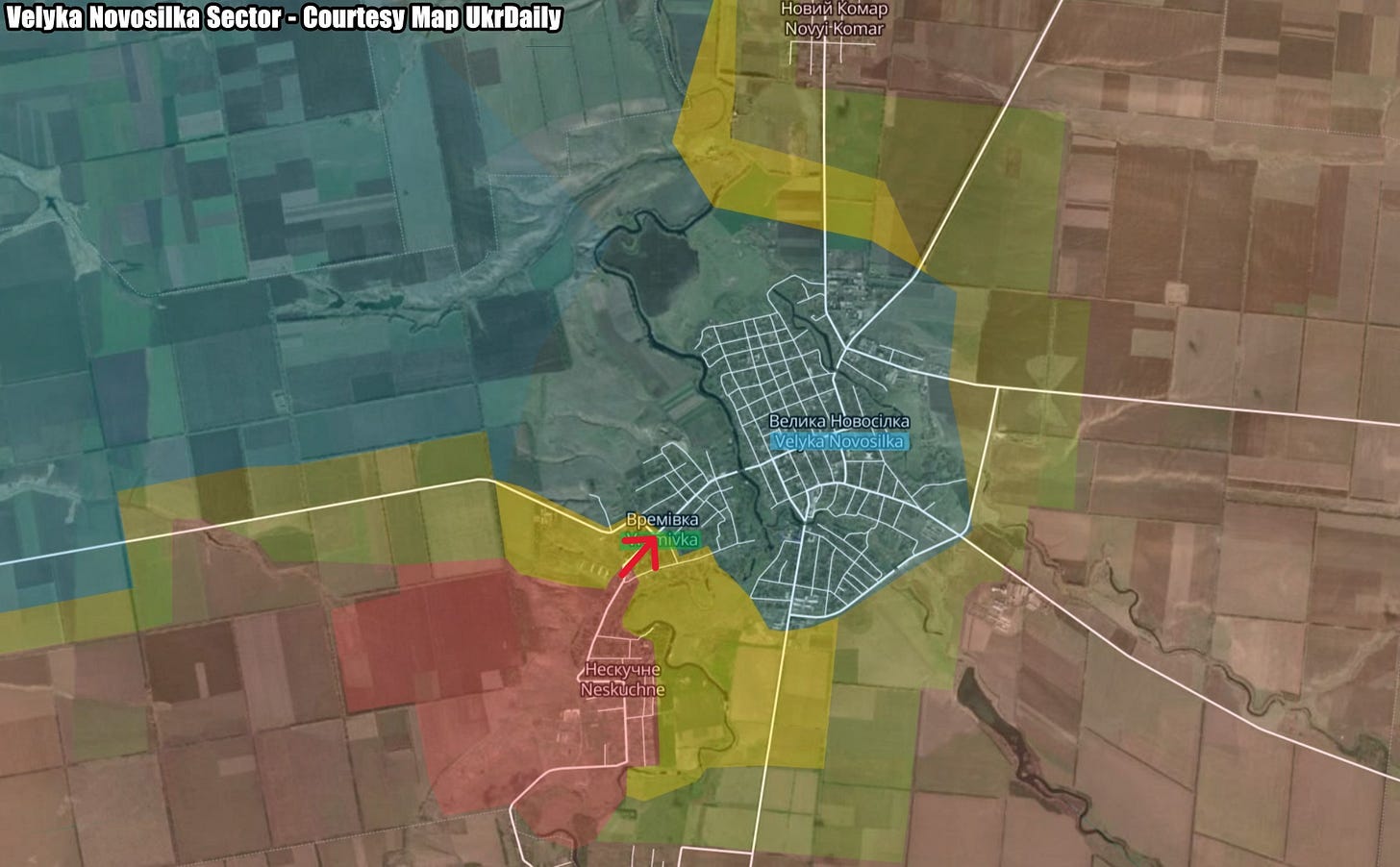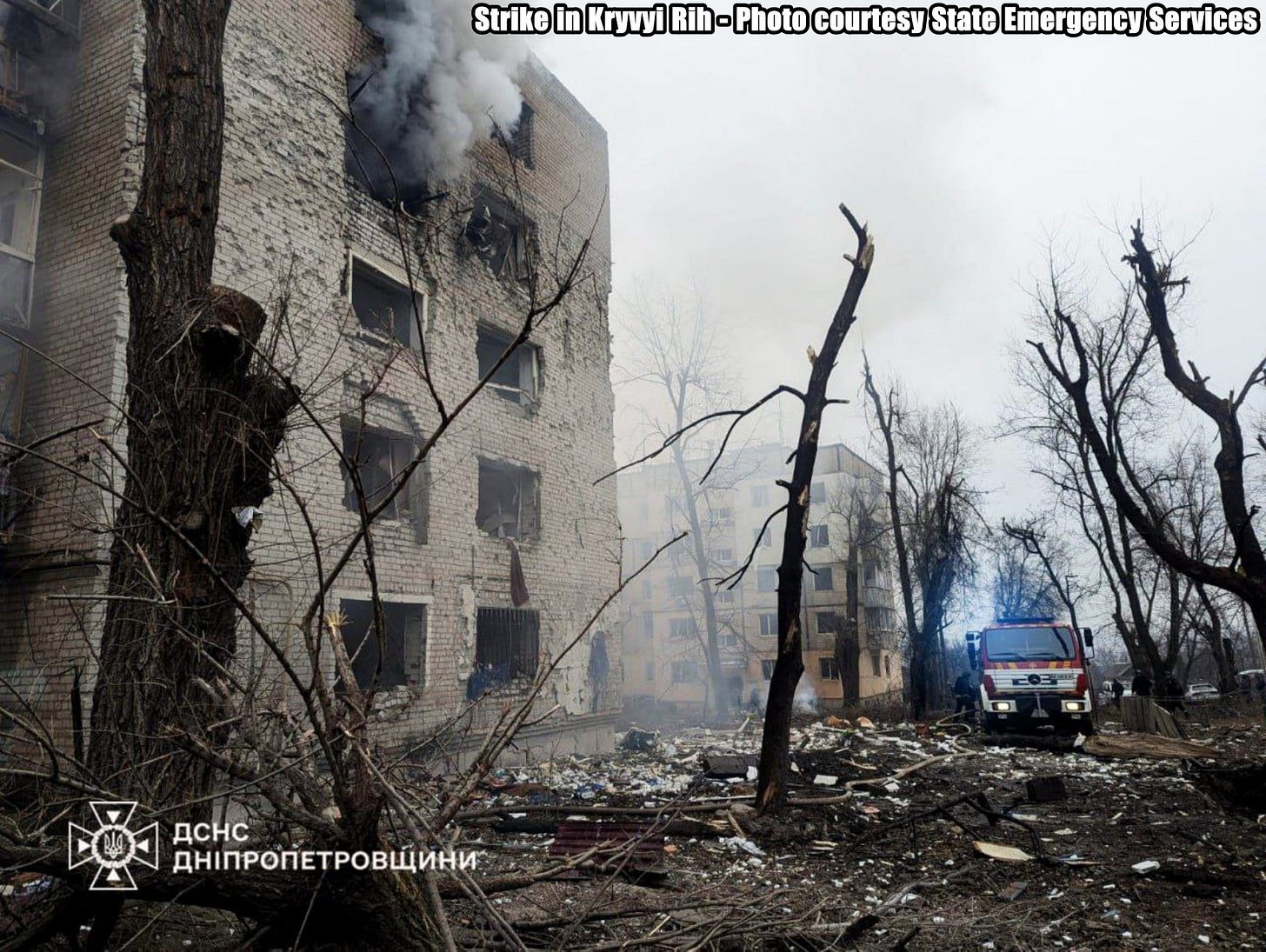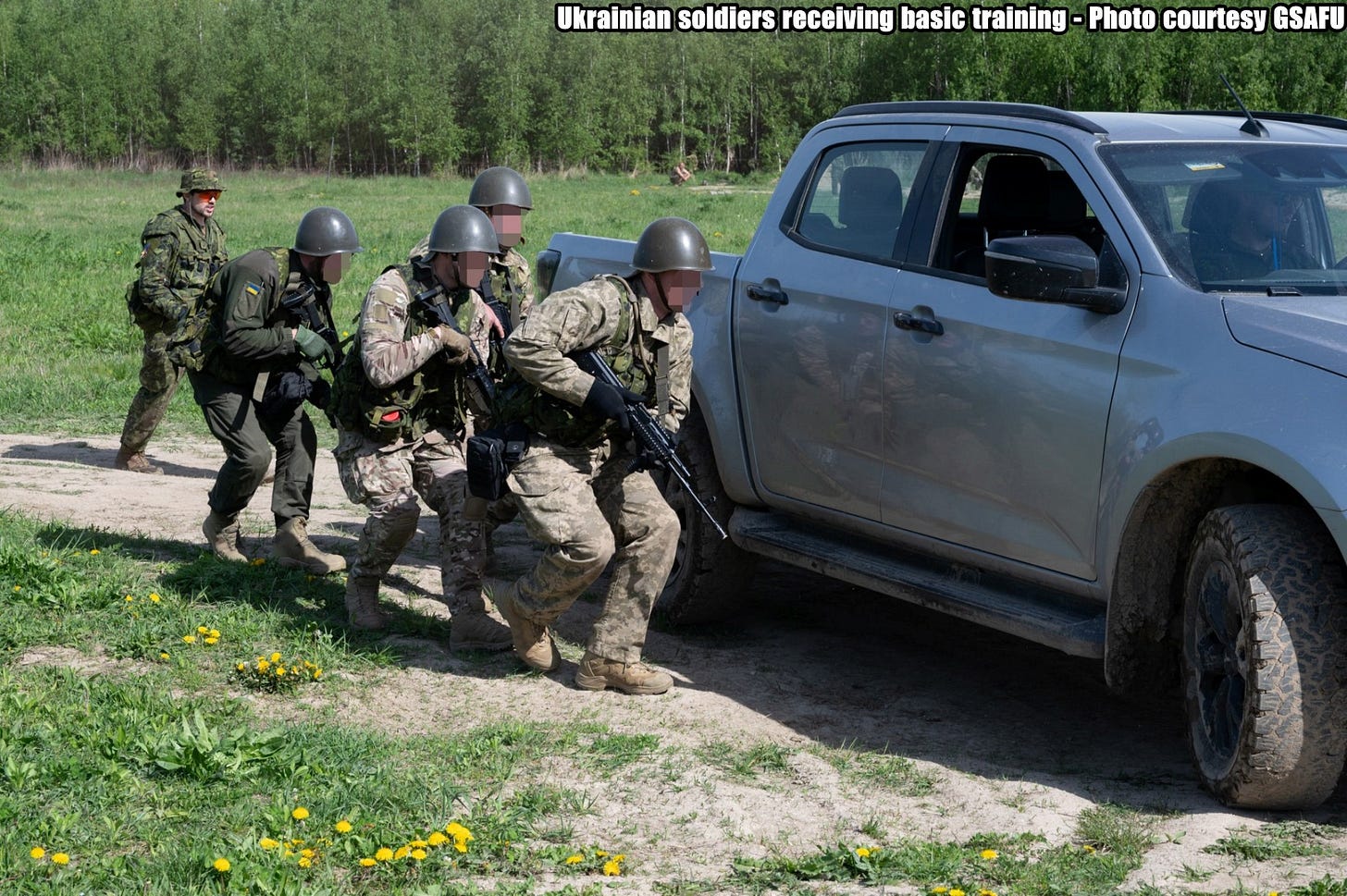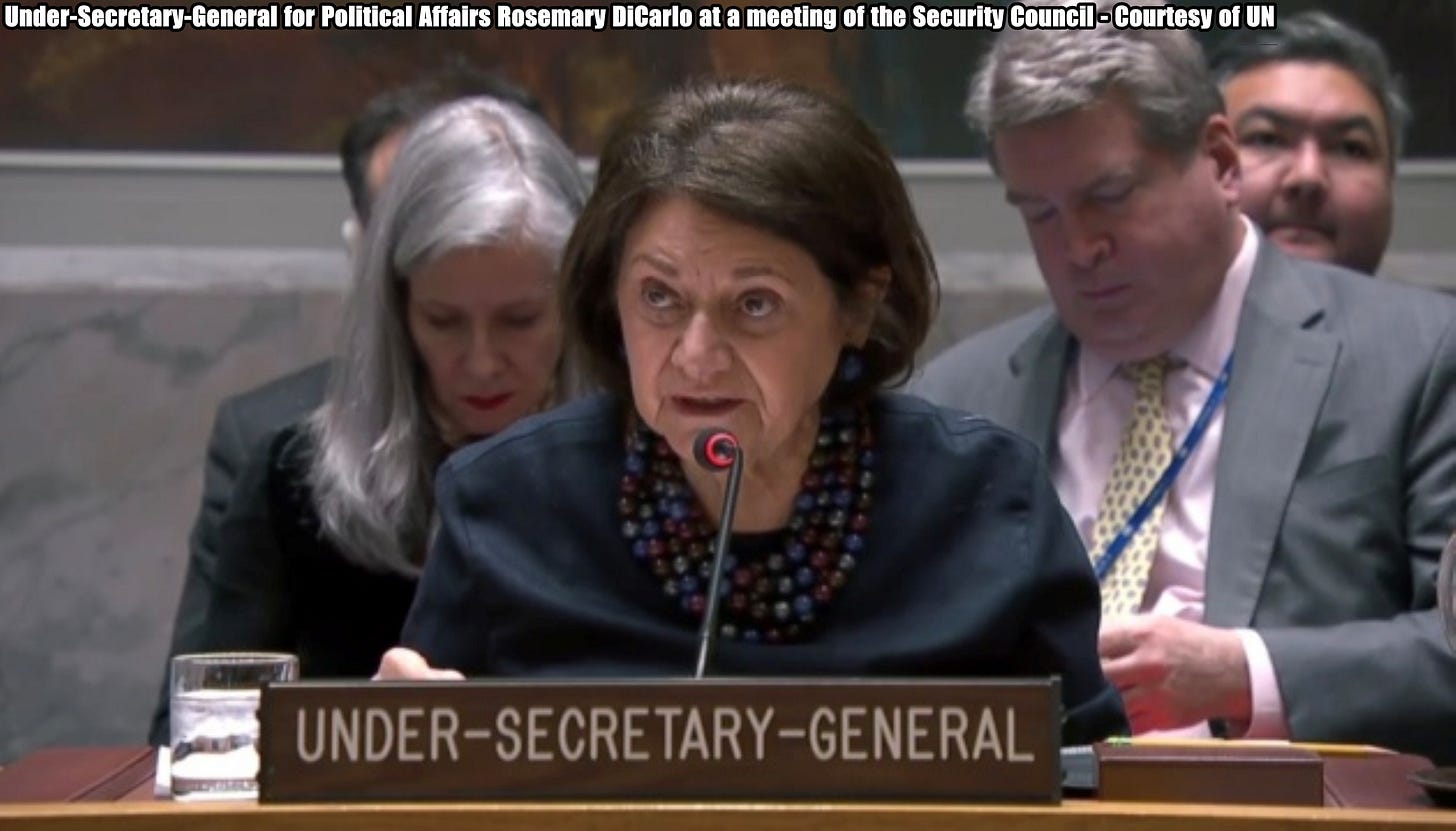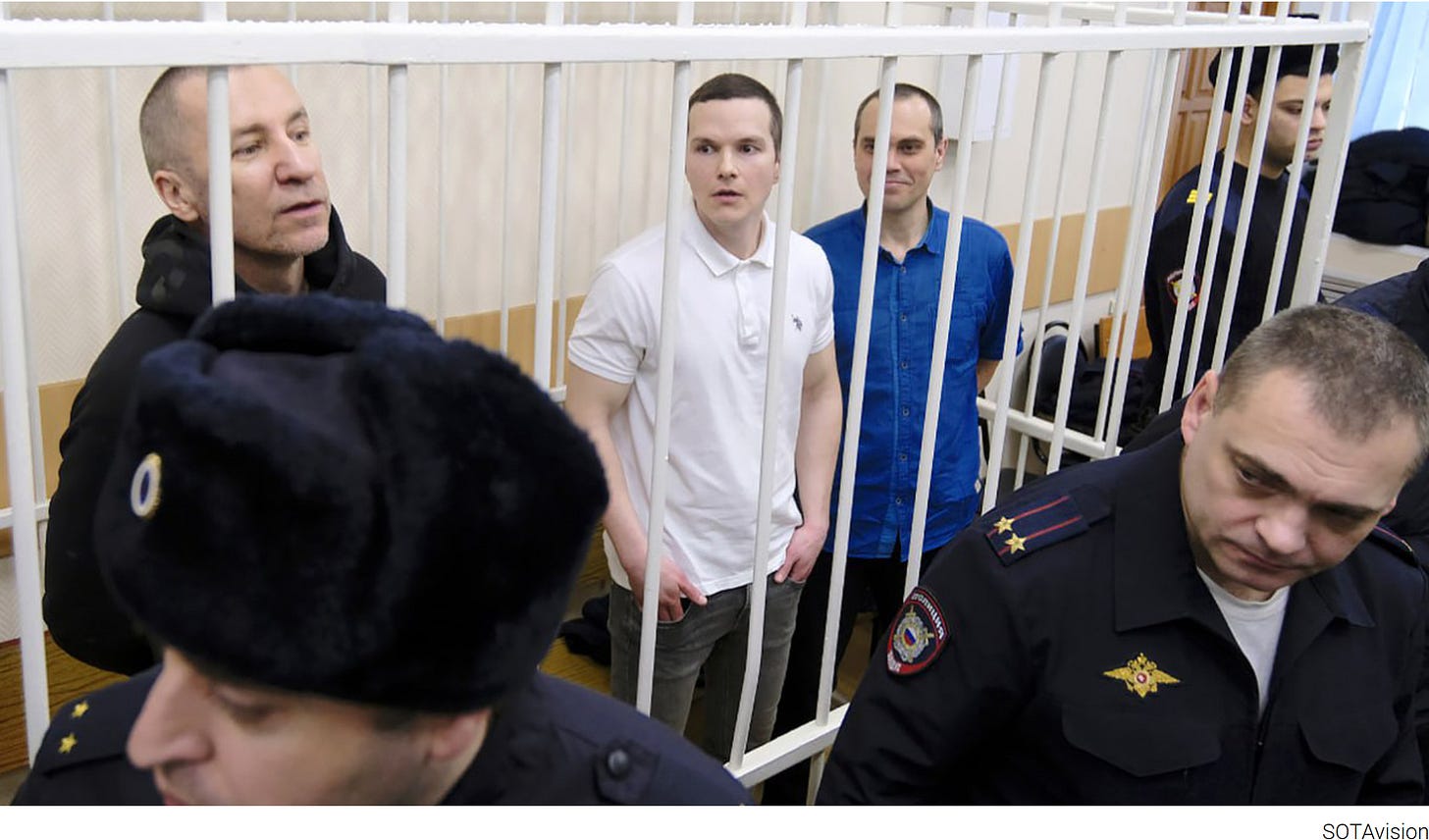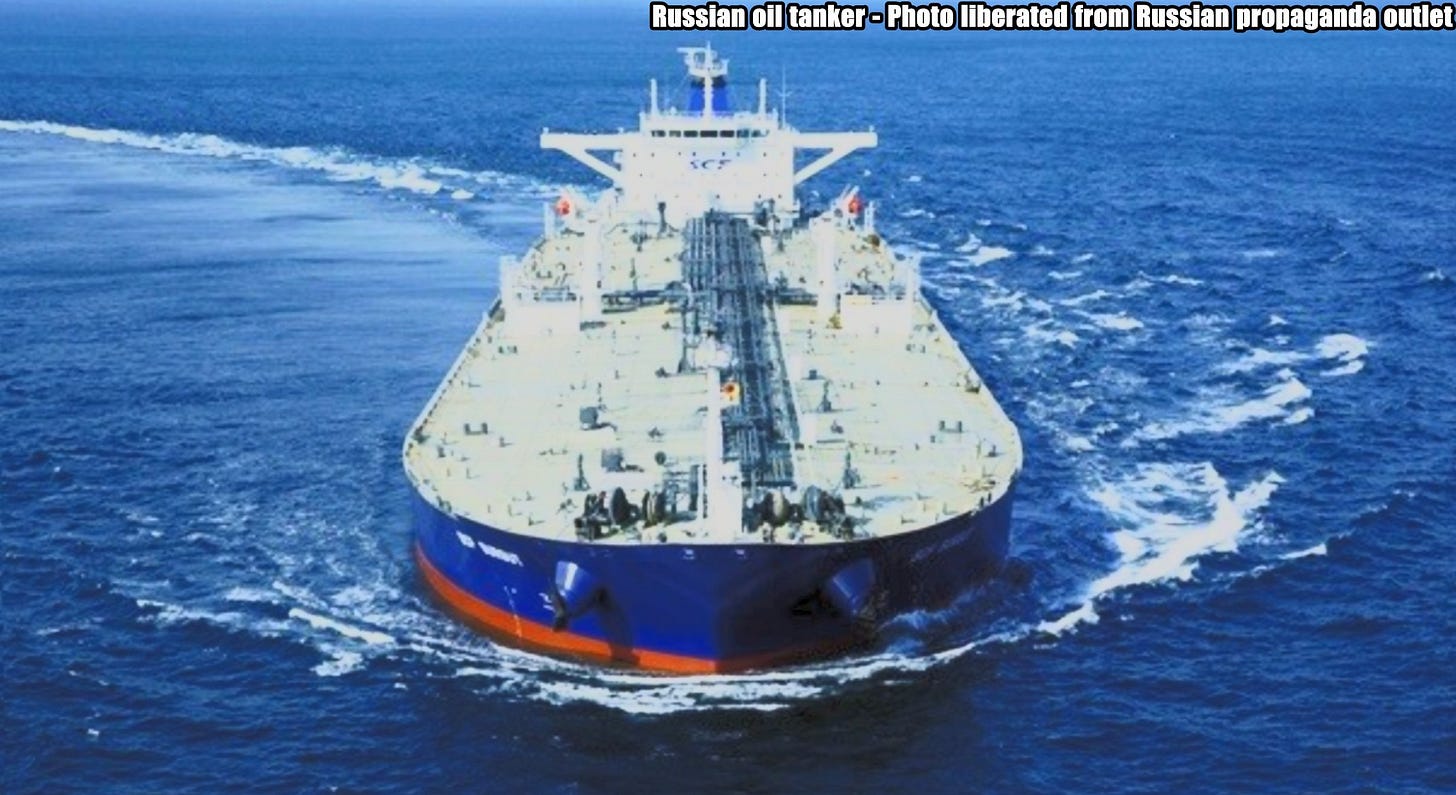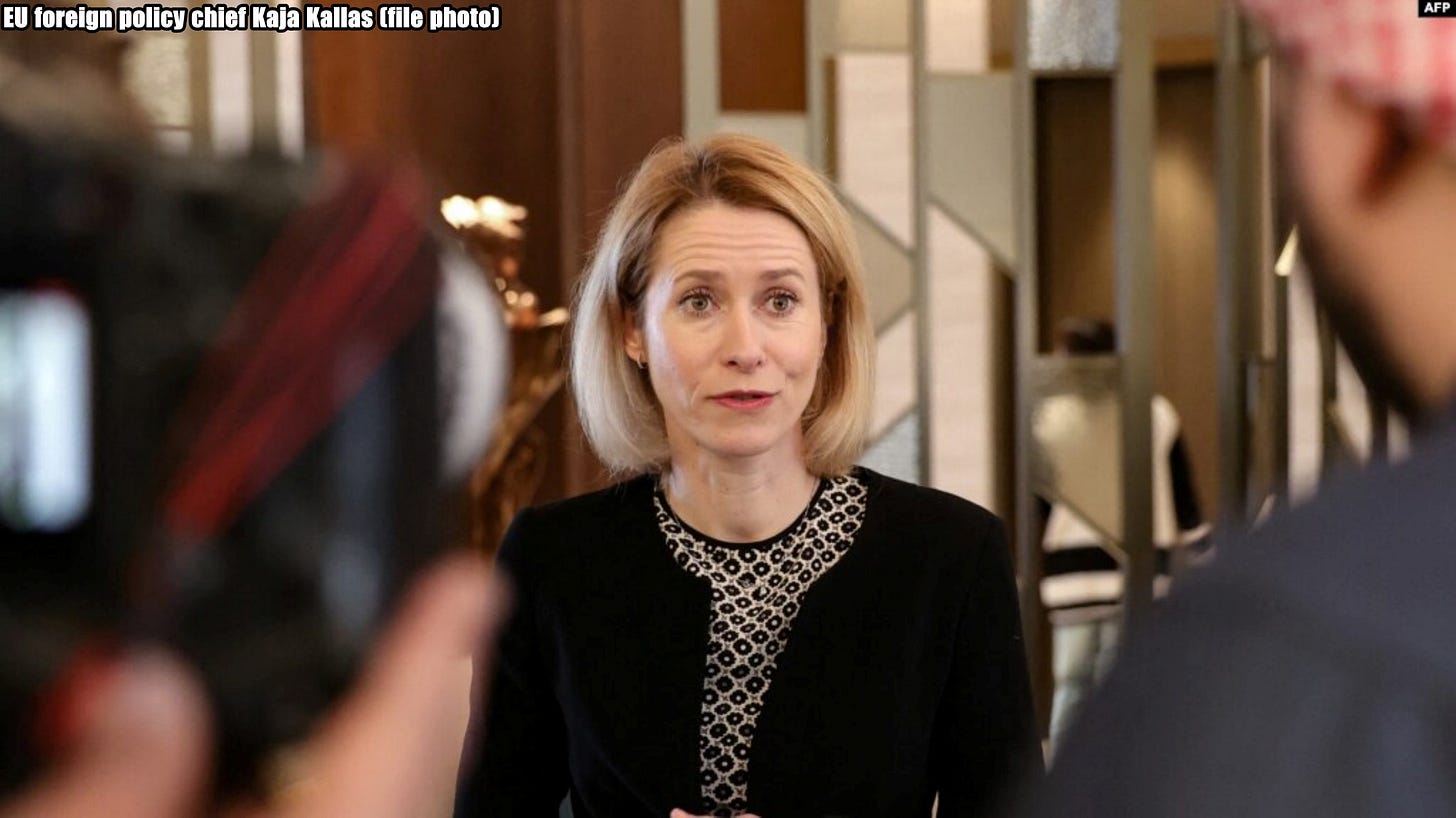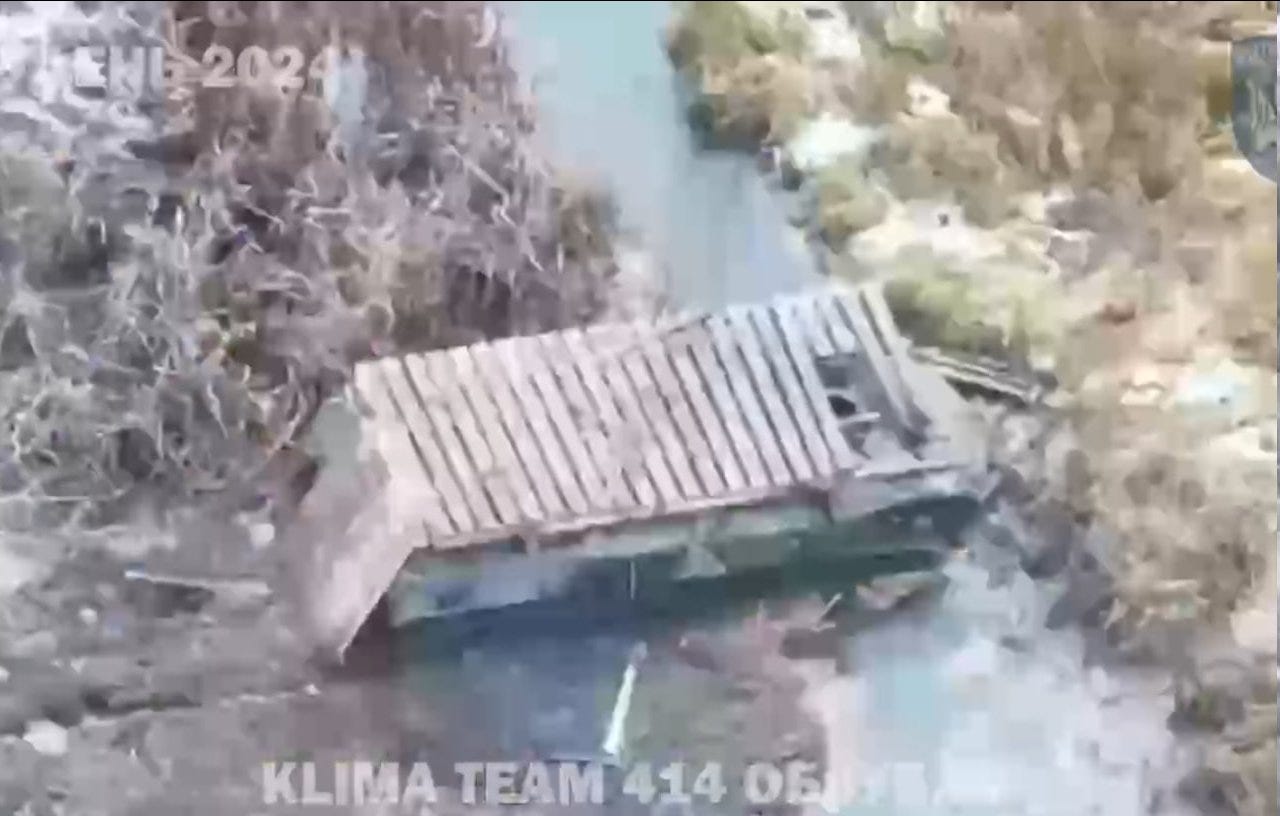Slava Ukraini! In early 2022 I began a Telegram channel aggregating news from a number of sources daily on the war in Ukraine. In June 2023 I began providing a daily draft for the Ukraine War Brief Podcast collecting news from over 70 sources daily, which formed the basis of the script. While the Podcast no longer exists I have continued to make this Brief available for my followers here on Substack for those who wish to keep up with the news from the war.
All the latest news on the Russo-Ukraine War 6 days per week
ALONG THE CONTACT LINE
GSAFU Morning Report
The General Staff of the Armed Forces of Ukraine in its Operational Information update at 08:00 on Jan 17 stated that day 1059 of the full-scale invasion of the Russian Federation against Ukraine had begun.
The situation on the line of combat remains tense in some sectors. Ukrainian defenders continue to actively counteract the Russian aggressor, causing them losses in personnel equipment and technology. Exhausting the enemy along the entire front line and continuing to disrupt the plans of Russian occupiers to advance deeper into the territory of Ukraine.
During the past day, 141 combat engagements took place. Over the past 24 hours, the enemy carried out 3 missile strikes, 60 air strikes, used 2,670 drones and approximately 5,000 artillery strikes across the positions of Ukrainian forces and civilians.
Air Force Daily Report
33 ENEMY UAVS WERE SHOT DOWN, 10 DID NOT REACH THEIR TARGETS (LOCATIONALLY LOST).
➖➖➖➖➖➖➖➖➖
On the night of January 17, 2025 (from 19:00 on January 16), the enemy used two Iskander-M ballistic missiles (launched from the Rostov region), and also attacked with 50 Shahed attack UAVs and simulator drones of various types from five directions: Millerovo, Orel, Bryansk, Kursk, Primorsko-Akhtarsk - Russia.
The air attack was repelled by anti-aircraft missile troops, electronic warfare units, and mobile fire groups of the Air Force and Defense Forces of Ukraine.
As of 09:00, the shooting down of 33 Shahed attack UAVs and drones of other types in Poltava, Sumy, Kharkiv, Cherkasy, Chernihiv, Kyiv, Khmelnytskyi, Dnipropetrovsk, Zaporizhia, Mykolaiv and Odessa regions was confirmed.
Enemy strike drones were recorded hitting enterprises in the Odessa region, and as a result of the fall of downed enemy UAVs, buildings of institutions, private enterprises, and households in the Kharkiv, Cherkasy, and Kyiv regions were damaged.
9 enemy drones-simulators were lost in location (without negative consequences), 1 more UAV left Ukrainian airspace in the direction of Romania.
Combat Operations in the Russian Federation
The Institute for the Study of War (ISW), a US based think tank, in its Jan 16 Russian Offensive Campaign Assessment reported that Ukrainian forces recently advanced in their main salient in Kursk Oblast amid continued fighting in the area on Jan 16. Geolocated footage published on Jan 15 indicates that Ukrainian forces recently advanced from the international border to central Uspenovka (south of Korenevo and just across the Russian-Ukrainian border). A Russian milblogger claimed that Russian forces advanced north and northeast of Makhnovka (south of Sudzha), but ISW has not observed confirmation of this claim.
A Russian source claimed that Ukrainian forces counterattacked near Makhnovka. Elements of the Russian "Smuglyanka" Detachment, 155th Naval Infantry Brigade (Pacific Fleet, Eastern Military District [EMD]), and Chechen Akhmat “Pressa” group are reportedly operating in Kursk Oblast; elements of the 83rd Airborne (VDV) Brigade are reportedly operating near Nikolayevo-Darino (northwest of Sudzha); drone operators of the 30th Motorized Rifle Regiment (72nd Motorized Rifle Division, 44th Army Corps [AC], Leningrad Military District [LMD]) are reportedly operating near Cherkasskoye Porechnoye (north of Sudzha); drone operators of the 106th VDV Division are reportedly operating near Uspenovka; and drone operators of the ”Irlandsty" and "Zarya" detachments and the ”Dozor” reconnaissance detachment are reportedly operating near Malaya Loknya (north of Suzha).
The Khortytsia operational-strategic group
(Responsible for the northeastern part of Ukraine. )
Chasiv Yar Sector: Russian forces recently advanced in the Chasiv Yar direction amid continued offensive operations in the area on Jan 16. Geolocated footage published on Jan 15 indicates that Russian forces recently advanced within the Chasiv Yar Refractory Plant in central Chasiv Yar.
Toretsk Sector: Russian forces recently marginally advanced within Toretsk amid continued offensive operations in the area on Jan 16. Geolocated footage published on Jan 16 indicates that Russian forces recently marginally advanced in northern Toretsk.
The Tavria operational-strategic group
(Responsible for the central-eastern and southeastern part of Ukraine.)
Pokrovsk Sector : Russian forces recently advanced southwest of Pokrovsk amid continued offensive operations in the area on Jan 16. Geolocated footage published on Jan16 indicates that Russian forces recently advanced in southwestern Zvirove (southwest of Pokrovsk). Geolocated footage posted on Jan 15 shows that Russian forces recently conducted a platoon-sized mechanized assault consisting of five vehicles near Yelyzavetivka (east of Pokrovsk).
Kurakhove Sector: Russian forces recently marginally advanced southwest of Kurakhove amid continued offensive operations in the area on Jan 16. Geolocated footage published on Jan 16 indicates that Russian forces recently marginally advanced south and southeast of Rozlyv (southwest of Kurakhove) during an at least platoon-sized mechanized assault.
Velyka Novosilka Sector: Russian forces recently marginally advanced in the Velyka Novosilka direction amid continued offensive operations in the area on Jan 16. Geolocated footage published on Jan 15 indicates that Russian forces recently entered Vremivka (immediately west of Velyka Novosilka) and marginally advanced along Shyroka and Heroia streets in southern Vremivka.
The Odesa operational-strategic group
(Responsible for Kherson, Qırım, (also known as Crimea) and the Black Sea.)
There have been no major changes to the combat environment since our last report.
TEMPORARILY OCCUPIED TERRITORIES
Nothing major to report.
THE HOME FRONT
Four killed seven injured in Russian missile attack on city of Kryvyi Rih
A Russian missile attack killed at least four people and partially destroyed an educational facility in the city of Kryvyi Rih in southern-central Ukraine on Friday, Reuters reports citing local officials .
At least seven others were hurt, some of them seriously, Serhiy Lysak, the governor of the Dnipropetrovsk region, said on Telegram.
"Each such terrorist attack is another reminder of who we are dealing with. Russia will not stop on its own - it can only be stopped by joint pressure," President Volodymyr Zelenskiy, who was born in Kryvyi Rih, said on Telegram.
Two five-storey buildings were also damaged and one caught fire, Lysak said.
Several explosions reverberated through the city, witnesses said on social media, after Ukraine's air force warned of the threat of a ballistic missile attack from Russia-occupied Crimea.
Russia, which began it's full-scale invasion of Ukraine almost three years ago, did not immediately comment on the reports from Kryvyi Rih.
Basic combined arms training for university students will begin in September.
Basic Combined Arms Training (BCAT) for students of higher education institutions will begin in September 2025 and will include 300 academic hours, Censor.NET reported citing the Ministry of Defense, this was announced by Deputy Minister of Defense of Ukraine Brigadier General of Justice Serhiy Melnyk.
Basic general military training will consist of two parts:
Theoretical course - 90 academic hours, which students will take at their educational institutions;
Practical course - 210 academic hours in training units, centers of the Armed Forces and other institutions.
Melnyk noted that all students, both men and women, will take the theory course. The practical course is mandatory only for men who are fit for military service for health reasons. Women will undergo practical training only at their own request and after passing a medical examination.
During the training, students will receive basic knowledge of tactical, intelligence and psychological training, first aid, and the basics of military discipline. They will also master the skills of handling weapons.
After completing the CPE, students take the military oath and receive a certificate and a military specialty.
On January 15, 2025, President of Ukraine Volodymyr Zelenskyy signed the draft law on amendments to the Law of Ukraine "On Military Duty and Military Service" regarding the peculiarities of registering Ukrainian citizens for military service No. 12076, adopted by the Verkhovna Rada. The document, among other things, provides for the systematic introduction of basic general military training for students pursuing higher education.
UN - In 2024, the number of Ukrainian civilian casualties increased by almost third.
UN Under-Secretary-General for Political Affairs Rosemary DiCarlo at a meeting of the Security Council stated that compared to 2023, in 2024 the number of civilians killed and wounded as a result of Russian military aggression in Ukraine increased by 30%. Censor.net reports.
"The increase in the number of victims among children is of particular concern. In the first three quarters of 2024, more children were killed and injured than in 2023," she said.
According to the Office of the United Nations High Commissioner for Human Rights, at least 12,456 people have been killed since the start of the full-scale war, including 669 children. There are 28,382 injured, including 1,833 children.
In addition, over 580 educational and medical institutions were damaged or destroyed in the first nine months of last year alone.
"I would like to reiterate that we unequivocally condemn all attacks on civilians and civilian infrastructure," DiCarlo emphasized.
According to her, since the beginning of the full-scale invasion, 10 humanitarian workers have been killed while performing their duties, and 41 have been wounded.
"There are reports that DPRK servicemen have been captured in the Kursk region of the Russian Federation. Reports of North Korean troops fighting on the side of Russian troops continue to raise serious concerns about the further internationalization of this already dangerous conflict," DiCarlo said.
She added that according to the 2025 Humanitarian Needs and Response Plan for Ukraine released on Thursday, some 12.7 million people are in need of support.
DiCarlo pointed to "the plight of many thousands of Ukrainian civilians living in the territories of Ukraine currently occupied by the Russian Federation." According to her, the needs of the residents of these areas are assessed as serious, but access to them is limited.
She also drew attention to Russia's increased shelling of Ukraine's energy facilities: "The UN continues to work with the Ukrainian government to restore energy production capacity, creating opportunities in the green energy sector."
DiCarlo once again expressed concern over reports of executions of Ukrainian prisoners by Russian forces. The December OHCHR report cited at least 19 cases since August when 62 people were executed.
"OHCHR has also found that the Russian Federation has widespread and systematic use of torture against Ukrainian prisoners of war," said the UN Under-Secretary-General. At the same time, she noted that individual cases of Russian prisoners of war in Ukraine are being investigated by the authorities.
RUSSIAN WORLD
Former Navalny Lawyers Sentenced to Prison on ‘Extremism’ Charges
A Russian court sentenced three former lawyers of the late opposition activist Alexei Navalny to prison on “extremism” charges, the Moscow Times reported citing independent news outlet Mediazona on Friday.
Vadim Kobzev, Alexei Liptser and Igor Sergunin were arrested in October 2023, accused of facilitating Navalny’s political activities from prison by allegedly passing messages between him and his allies.
Investigators claimed the lawyers used their legal status to “plan, prepare, enable and commit extremist crimes.” Kobzev and Liptser denied the charges, while Sergunin reportedly pleaded guilty.
The Petushki District Court in the Vladimir region convicted the trio of “participating in extremist activity.” Kobzev was sentenced to 5.5 years in prison, Liptser to 5 years and Sergunin to 3.5 years. Additionally, all three were banned from practicing law for three years following their release.
Prosecutors had sought sentences of up to 5 years and 11 months for the lawyers. The trial was closed to the public at the prosecution's request.
Dozens of journalists and supporters attended Friday’s sentencing, but they were removed from the courtroom after someone shouted “shame on the junta.” Mediazona reported that at least four journalists and one supporter were briefly detained on a train arriving in the town of Petushki, 100 kilometers (60 miles) from Moscow, but were released after the sentencing.
Liptser’s defense team announced plans to appeal the verdict.
Following the sentencing on Friday, Navalny’s widow, Yulia Navalnaya, wrote on X that the three lawyers “are political prisoners and should be freed immediately.”
The convictions come amid a broader crackdown on associates of Navalny. Four independent Russian journalists are also on trial for alleged “extremism” linked to their purported work with Navalny’s team.
Navalny’s political and activist organizations, including his Anti-Corruption Foundation, were designated “extremist” by Russian authorities in 2021, subjecting employees, volunteers and supporters to criminal prosecution.
Russia’s seaborne oil exports decline 9.1% in 2024 amid Ukrainian drone attacks
Russia's seaborne oil product exports fell by 9.1% to 113.7 million metric tons last year as the country's oil refineries faced headwinds including Ukrainian drone attacks, an export ban, falling prices and higher input costs, industry data shows. Reuters reported on Jan 17.
Ukraine targeted several Russian refineries and fuel facilities, including Lukoil's Volgograd refinery, Gazprom Neft's Omsk oil refinery in western Siberia, the Slavyansk and Novoshakhtinsk refineries and Rosneft's Black Sea oil refinery in Tuapse.
Russian refineries also experienced financial pressures due to falling prices for oil products, rising raw material costs and Russia's ban on gasoline exports, market sources said.
As a result, Russian oil processing fell to around 267 million metric tons in 2024, its lowest level since 2012, as unplanned outages and weaker margins took their toll, Reuters calculations based on data from market sources showed.
Total oil product exports via the Baltic ports of Primorsk, Vysotsk, St. Petersburg and Ust-Luga fell by 9% in 2024 from the previous year to 61.96 million tons, the data showed.
Fuel exports via Russia's Black Sea and Azov Sea ports fell to 42.75 million tons, down 10% from 2023.
Oil products export loadings via the Russian Black Sea port of Tuapse fell by a third to 9.1 million tons due to outages after drone attacks, suspended processing and decreased refining at Rosneft's refinery, market sources told Reuters.
At the same time, Russian fuel exports via the Black Sea port of Novorossiisk rose 4% to 19 million tons, data showed.
Oil product export supplies from Russia's Arctic ports of Murmansk and Arkhangelsk fell to 1.01 million tons, down 14%, while fuel export loadings at Far East ports fell 3% from 2023 to 7.97 million tons.
Russia's seaborne oil product exports rose 10.8% month on month in December to 10.37 million tons, including 4.17 million tons loaded via Russia's Black Sea and Azov Sea ports, 5.49 million tons through Baltic Sea ports and 637,100 tons via Russia`s Far East ports, data from sources and Reuters calculations showed.
INTERNATIONAL NEWS
Kallas Says Europe Should Increase Pressure On Moscow In Push To End War.
EU foreign policy chief Kaja Kallas said Kyiv and its partners should continue to apply pressure on Russia to improve Ukraine’s position in any eventual negotiations to end the war.
Kallas, speaking on January 14 in an interview with RFE/RL and several European newspapers, said increasing economic pressure on Moscow and isolating it internationally are the only ways to prevent Russia from gaining the upper hand.
“We should not underestimate our own capabilities and overestimate the Russians,” Kallas said. "Russia sometimes seems like a mysterious power that cannot be defeated. This is not true. We are stronger in terms of both military and economic capabilities. We should approach things from a position of strength.”
Signs of strain on Russia's economy include key interest rates above 20 percent, Gazprom cutting 40 percent of its management, a labor market in "very bad shape,” and the recruitment of North Korean soldiers to fight on Moscow's side, she said.
"All this shows that they are not in a good position,” she added.
Russia is convinced that time is on its side, but Kallas said she believes this is wrong and Kyiv's Western allies should further increase economic pressure.
"We see that their cash reserves are completely depleted. They have much less income from the sale of oil and gas than before," she said.
The European Union will discuss sanctions as they try to decide on a 16th package to coincide with the February 24 anniversary of the war, an EU official told RFE/RL. It will be a substantive package despite the difficulty of finding new areas to sanctions, the official said.
The focus of the package is therefore expected to be technical and anti-evasion measures. In addition the discussions will consider import restrictions on primary aluminum, tariffs on agricultural products, including chemicals used in fertilizers, and more measures to restrict Russia's so-called shadow fleet of oil tankers, according to the official.
Kallas expressed confidence that the European Union will be able to maintain unity on its policy of sending arms and other aid to Ukraine despite resistance from a few European governments that are sympathetic to Russia. The former Estonian prime minister said the European Union has been able to maintain unity despite "difficult negotiations" with those governments.
“This is becoming increasingly difficult,” she admitted. "Yet I still have confidence that we can represent a unified position, because only with this can we remain strong.”
The stronger Ukraine is on the battlefield, the stronger it will be at the negotiating table, she said.
Kallas also commented on President-elect Donald Trump’s statement that he will be able to end the war quickly, saying that the world awaits Trump’s plan. If Trump, who is set to be inaugurated on January 20, really uses U.S. power to pressure Russian President Vladimir Putin to withdraw his troops from Ukraine and stop the bombing of civilians and civilian infrastructure, the war could end in a timely manner, she said.
But she reiterated the EU's position that there should be no decision about Ukraine without Ukraine’s consent and that goes for Europe as well.
“It is clear that whatever agreement is reached, Europe must be part of it. It is up to the Ukrainians to decide what kind of agreement is acceptable to them,” she said.
Whether Putin truly wants peace is another question, she said, warning that a cease-fire would only be used by the Russians to regroup and rearm their forces.
"The Russians have never respected cease-fires. That’s why it’s important for Europe that the peace is sustainable and lasting,” she said.
Kallas also spoke about recent attacks on undersea cables in the Baltic Sea, stressing that it would be a mistake to treat them separately from attacks on different European critical infrastructure. The incidents should be considered collectively and also in the context of similar attacks that she said China has carried out against Taiwan and South Korea.
This points to the need to further develop international maritime law and the need to further tighten sanctions against Russia's so-called shadow fleet that it uses to evade sanctions on its oil exports, she said.
Slovak opposition leader arrives in Kyiv to 'reopen door Fico slammed'
A Slovak delegation headed by pro-Western opposition leader Michal Simecka of Progressive Slovakia party arrived in Kyiv on Jan. 17, the Kyiv Independent reported citing Simecka on social media.
"Our goal is clear — to reopen the door that Robert Fico slammed with his aggressive outbursts," Simecka wrote, who in turn initiated a confidence vote set for next week.
His visit comes days after President Volodymyr Zelensky invited Fico to visit Kyiv on Jan. 17 amid the Slovak prime minister's threats to limit aid to Ukrainians and cut off electricity supplies due to the termination of Russian gas transit through Ukraine to Europe.
Fico said on Jan. 16 he may meet with Zelensky in the "next few days." According to the opposition leader, the Slovak delegation is planning to hold "important talks" with a Ukrainian side. "Slovakia and Ukraine are close partners and can help each other a great deal," he said.
Ukraine did not renew a pre-war agreement to transit Russian gas to Europe via Ukrainian territory, instead allowing the deal to expire on Jan. 1. Kyiv warned repeatedly that it would not extend the deal in order to stop financing Russia's full-scale war.
Fico and his Hungarian counterpart Viktor Orban have been among some of the most vocal opponents of Ukraine's decision to stop Russian gas transit.
Despite Russia's invasion of Ukraine, Orban and Fico have continued to maintain friendly ties with Russian President Vladimir Putin, meeting with him, and promoting pro-Russian narratives in Europe.
On Jan. 14, Slovakia's opposition parties announced plans to initiate a vote of no confidence in Fico's government, citing concerns over his governance and foreign policy direction.
MILITARY & TECH
Ukraine Gaining 'Useful' Intel From Captured North Korean Soldiers
Ukraine's Military Intelligence (HUR) says two North Korean soldiers captured while fighting for Russia continue to be interrogated with Kyiv ready to swap them for Ukrainian troops held by Moscow if North Korean leader Kim Jong-un can arrange such an exchange. Radio Free Europe reports.
Speaking to RFE/RL's Ukrainian Service on January 13, Yevhen Yerin, a representative of HUR, said the capture of live North Korean soldiers, the first Ukraine has announced since their entry in support of Russia into the nearly 3-year-old war last autumn, provides Kyiv "many useful opportunities."
"The information we can gather from these individuals is important not only for operational intelligence but also as a political tool to reveal the participation of the North Korean Army in Russia's military actions," he said.
The capture of the two wounded soldiers, announced on January 11 by President Volodymyr Zelenskiy, has yet to be confirmed by either Moscow or Pyongyang.
Russians in Kursk Region Find Unusual Use for BTR-D APCs
During the battles in the Kursk region, russian troops took an unusual step of sinking two of their BTR-D armoured personnel carriers to make crossings over small rivers. For the convenience of their infantry, Russians placed wooden pallets on these armored vehicles, and as a result, the crossings had a rather unusual design. Defense Express reports.
The relevant photos have been spread on social media, and at first glance, it is surprising how irrationally Russians used their armored vehicles.
Usually, Russian military leaders tend to focus only on equipment, not on their soldiers, because equipment is a scarce resource, unlike manpower.
According to The Military Balance 2024, the Russian army's airborne troops had 550 BTR-D APCs at their disposal at the beginning of last year.
These Soviet-made armored vehicles can cross water obstacles at a speed of 10 km/h, so they can be used in the normal mode to cross rivers. Referring to the faulty vehicles that russian troops could deliberately use as a "basis" for crossings, it still seems irrational, because defective APCs could be disassembled for parts to repair serviceable ones.
Grumpy here - The BTR-D family of APC’s have long been plagued by problems that have resulted in Russian troops wanting to have nothing to do with them. The vehicles were designed to give Soviet paratroopers once on the ground a means to be mobile. Their armour was extremely sub-par as emphasis was put on lightweight, a requirement for an air transportable vehicle. The second issue was that an infantry transporter that could only carry 4 troops was of very limited use. I suspect in this case these Russian soldiers were more interested in disposing of these vehicles than in being innovative.
That’s it for today’s Brief folks if you would like to keep up with events in Ukraine daily please consider subscribing, it’s free!


